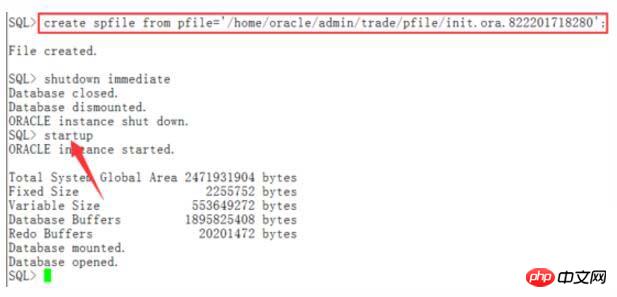Home >Database >Mysql Tutorial >Solution to the ORA-32004 error when Oracle starts
Solution to the ORA-32004 error when Oracle starts
- 小云云Original
- 2017-12-11 14:57:552937browse
Recently, I encountered some errors when starting the instance. I finally solved the problem by searching for relevant information, and decided to share it with friends in need. Therefore, the following article mainly introduces the error when starting the Oracle instance: ORA -32004's solution, friends in need can refer to it, I hope it can help everyone.
Preface
Some time ago, I just arrived at the company in the morning, turned on the computer and found that the following error was reported when starting the Oracle instance:
SQL> startup nomount; ORA-32004: obsolete or deprecated parameter(s) specified for RDBMS instance ORA-16032: parameter LOG_ARCHIVE_DEST destination string cannot be translated ORA-07286: sksagdi: cannot obtain device information. Linux-x86_64 Error: 2: No such file or directory
Oh, I feel anxious all of a sudden. It used to be fine, why did it suddenly become like this? I recalled it, and it turned out that I had modified the parameter file spfile before. It didn't need to be modified, but I changed it. I guess the problem lies here.
I will post the error report below and attach the solution. If you encounter this problem, you can just solve it like this.

Solution:
① First start the database with the static parameter file pfile

② Use the static parameter file to rebuild the dynamic parameter file spfile and restart the database

From the above two steps, That is to say, the problem of error reporting when starting a database instance is solved!
Related recommendations:
Errors and solutions encountered when installing cx_Oracle
ora-12899 appears in the Oracle database What to do if the error occurs
Instance optimization ORACLE database performance
The above is the detailed content of Solution to the ORA-32004 error when Oracle starts. For more information, please follow other related articles on the PHP Chinese website!

